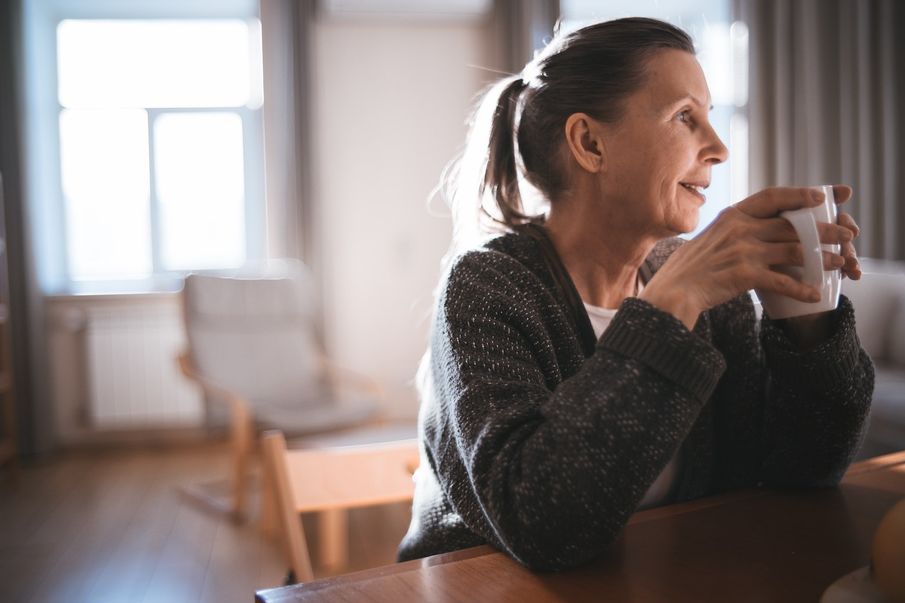The fifth Loneliness Awareness Week kicks off today and this year we’re being encouraged to accept loneliness as a natural part of being human
Many of us know how it feels to be lonely and, in the last year, more of us than ever have felt its effects. With a mission to bring the conversation of loneliness to the forefront and to help people make new friends, The Marmalade Trust charity hosts Loneliness Awareness Week every year.
This year marks the fifth awareness week, where you’ll see conversations about loneliness lighting up and events like the Lonely Bouquet campaign taking place. Organised by Direct2Florists, this campaign involves 900 florists who will leave a bouquet outside every day of the week to be picked up by someone so they can give it to someone in their thoughts.
We catch up with the founder of The Marmalade Trust and former NHS Occupational Therapist Amy Perrin to find out what inspired her to set up the trust, why accepting loneliness is so important and her top tips for combating loneliness.
Can you tell us what inspired you to set up The Marmalade Trust and start the Loneliness Awareness Week initiative?
Working as a health professional for the NHS for 15 years, I saw a lot of patients experiencing loneliness and realised the impact that it can have on health and wellbeing. I initially started with running Christmas Day events, but soon realised that supporting people to make new friendships was very easy and had an incredible impact.
One thing that has always struck me about loneliness is the stigma and shame associated with it. Loneliness is a natural human emotion, something we are all likely to experience at some point in our lives and, yet, people feel embarrassed to talk about it. So, in 2017, we decided to start loneliness awareness week to raise awareness of loneliness and reduce the shame associated with it.
The interest and engagement in the week has grown enormously over the past five years. In 2020 we ran our first digital campaign, due to the pandemic, which saw almost 20,000 organisations, individuals and companies get involved with the campaign. It reached 271.5 million people, with conversations about loneliness taking place every two seconds online on the first day of the campaign.

This year's theme is acceptance. Can you tell us more about why accepting loneliness is important?
We recently completed some research which showed that 79% of respondents reported the pandemic has increased their understanding of loneliness. However, it also showed that 40% of people said they would not feel comfortable talking to anyone about it.
Loneliness is a natural human emotion, we like to view it as a warning sign that you need to address your human connections, a bit like thirst is a sign you need to drink. Following an incredibly difficult year, we believe it's now more important than ever to accept loneliness in that way. We are encouraging people to see loneliness as an experience, not a condition. It doesn’t define us. By building a greater awareness and acceptance of loneliness, we can help ourselves and others manage the feeling.
We get lonely – do you?
What are your top tips for combating loneliness?
Acknowledge loneliness in yourself and others. If you are feeling lonely, acknowledge what that feels like, talk to others and explain how you are feeling.
Identify what you need. We are all different and need different levels of social contact and connection. What do you need? Do you prefer face-to-face contact, phone calls, or being part of an online group? Everyone is different, so work out what you enjoy, what makes you feel connected and happy.
Take action. Think about ways that you can increase your connections and friendships. Here are a few suggestions:
- Build your daily connections, shop locally, talk to your neighbours and think about those small interactions you can have with people on a daily basis.
- Consider making new friendships – joining groups, clubs, sporting activities or online groups.
- Volunteer! A great way to meet new people is to volunteer and give your time to help someone else.
- Use technology wisely. How does social media make you feel? If scrolling through Facebook for hours makes you feel disconnected, maybe reduce the time you are doing this.
- Be kind to yourself! Particularly at the moment as we start to return to ‘normality’ again. Take your time, do things at your own pace.
- If you feel like your feelings of loneliness are affecting your health and wellbeing, reach out to a health professional to discuss this further.

How can people get involved in the initiative this year?
We are asking everyone to get involved in the week by doing the following:
- Raise awareness, by talking about loneliness – with friends, family, colleagues. By talking and sharing our experiences we will reduce the shame associated with it.
- Share our digital assets on your social media here.
- Learn more about loneliness, some useful guides can be found here.
Opening up the conversation and learning more about how loneliness can affect us is something all of us can do. And if you want to take things further, there are lots of ways you can support others. Why not get writing and take part in these letter writing schemes to help reduce loneliness:
- A Letter from Louise: Organised by charity Omega, this scheme matches those in need with a volunteer pen pal for friendly conversation.
- Carers Pen Pal Scheme: Organised by Crossroads Together, this scheme aims to connect carers with others who understand their situation.
- Letter Link: Organised by the Prison Fellowship, this scheme encourages volunteers to engage in non-judgemental, encouraging and honest conversations with prisoners.
However you get involved this week, talking more openly about the realities of loneliness is an incredible step forward. And if you’re currently struggling with the effects of loneliness, help is available. Learn more and find a counsellor on Counselling Directory.


Comments